The Maynard Adams Fellowships for the Public Humanities has just announced its sixth cohort of fellows. This annual initiative led by Carolina Public Humanities supports 10 graduate students who are interested in using humanistic scholarship to build relationships between the university and the broader community. The fellowships are funded by the Taylor Charitable Trust, and honor the late UNC-Chapel Hill philosophy professor and their namesake, who emphasized the public value of the humanities throughout his distinguished academic career, and who founded the Program in the Humanities (which would later become Carolina Public Humanities) in 1979.
Each year, ten graduate students from various disciplines in the humanities are selected by an interdisciplinary faculty committee to participate in the fellowship. Fellows receive a stipend for participating in monthly conversations about the role of the humanities in public life and for taking part in an annual “E. Maynard Adams Symposium for the Humanities,” which this year will feature Harvard philosopher Tommie Shelby.
Fellows are also each tasked with planning a publicly-engaged project. This year’s planned projects include a writing workshop for high school students; an Instagram page about hidden histories of Eastern Carolina; a Stoicism discussion group at a local library; a rural roundtable series; and an interactive art initiative at the Stagville Plantation historic site.
All of the projects are centered on the goal of bringing the vibrant research and conversation that is taking place at the university into direct dialogue with broader North Carolina communities. As Max Owre, Professor of History and Executive Director of Carolina Public Humanities, explains, “Carolina Public Humanities’ mission to build bridges between faculty and scholarship at Carolina with communities across the state mirrors the University’s strategic plan to be ‘of the people and for the people.’ These young scholars are committed to steering their expertise to the goal of fostering humanistic dialogue and reflection in the public, and reinforcing the idea that knowledge production is a collaborative act. We look forward to seeing their projects come to fruition in diverse locations and communities throughout the state.”
Read on to meet this year’s cohort of fellows, which includes students from Philosophy, Religious Studies, English and Comparative Literature, History, and Studio Art:
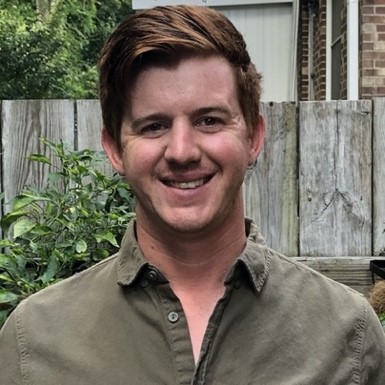 |
|
Ryne Beddard grew up in Eastern North Carolina and now he researches and writes about the history of that region, and about the U.S. South more broadly. He is a Ph.D. candidate in the Religious Studies department. His dissertation focuses on changing ideas and attitudes about religion, race, and place in the colonial and antebellum Albemarle watershed. Ryne teaches about religion, philosophy, and history at UNC. |
| |
|
|
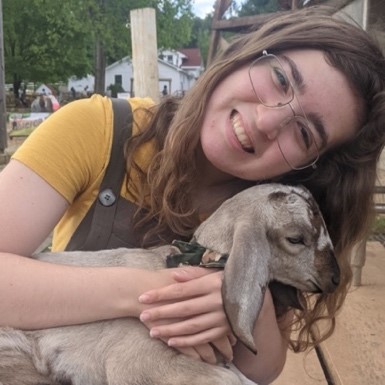 |
|
Ariannah Kubli is a second-year Ph.D. student in the Department of English and Comparative Literature, where she specializes in late nineteenth- and early twentieth-century American literature. Before coming to UNC, she received her B.A. in English with a minor in philosophy from Georgia State University. Her current research explores the interplay between fiction, labor movements, and radical politics in the United States from 1880 to 1920. When not researching, teaching, or reading, Ariannah enjoys spending time with her beloved baby Nubian goat, Armstrong, who lives at a local farm. |
| |
|
|
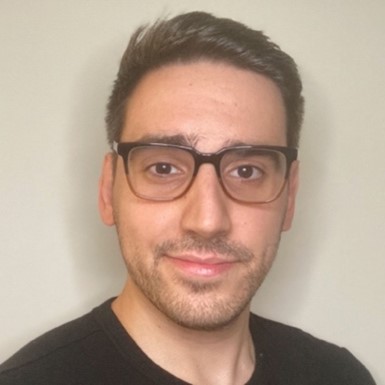 |
|
Devin Lane is a second-year year Ph.D. student in Philosophy. Prior to coming to UNC, he competed a B.A. at Northeastern University and an M.A. at Northern Illinois University. His research interests are primarily in epistemology, social and political philosophy, and their intersection. He is currently working on a project concerning how we can best fulfill our dual roles as responsible inquirers and involved citizens in today’s epistemically complicated world. In his free time, you can find him in the gym, trying to regain his former glory as a competitive powerlifter, or spending time with his fiancée, Helen, and their two cats, Tater Tot and Homefry |
| |
|
|
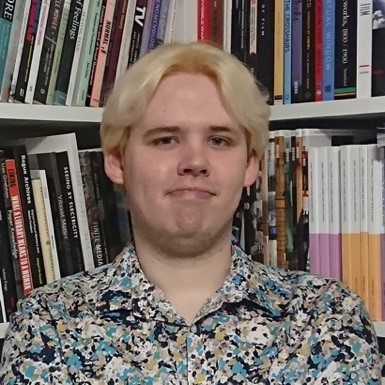 |
|
Hugo Ljungbäck is a Swedish video artist, film curator, and media scholar. His research focuses on the intersection of video art, media archaeology, and the archive, and examines the materiality of the moving image and its processes of mediation. His videos explore queer subjectivities and tell underrepresented stories about intimacy, coercion, and memory, and have screened at international film festivals and galleries. He is an MFA Candidate in Studio Art at UNC and holds a BFA in Film, Video, Animation, and New Genres from the University of Wisconsin-Milwaukee, where he served as Director and Chief Curator of the Patricia Mellencamp Film and Television Archive. He is co-chair of the Association of Moving Image Archivists’ Small Gauge and Amateur Film Committee and Founding Editor of Artifact & Apparatus: Journal of Media Archaeology. |
| |
|
|
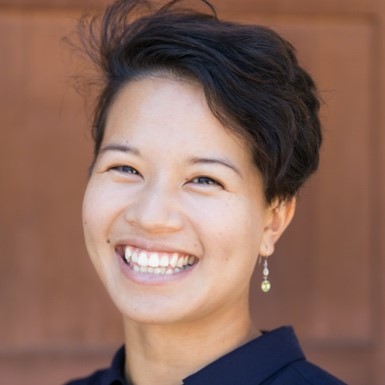 |
|
Genae Matthews is a second-year philosophy graduate student from Ventura, CA. They earned their B.A. in Philosophy from Wellesley College in Boston, MA. They particularly like puzzling over questions in modal epistemology and social ontology, and they are deeply committed to philosophy as a means of working towards emancipation and social justice. Outside of philosophy, they enjoy rock-climbing, cooking, spoiling their cat, attempting to keep their plants alive, and spending time with family and friends. |
| |
|
|
 |
|
Jane McGrail is a Ph.D. student and teaching fellow focusing on Rhetoric, Composition, and Literacy Studies in the Department of English and Comparative Literature at UNC-Chapel Hill. She holds a B.A. in English Literature from the College of the Holy Cross in Worcester, Massachusetts. Her research focuses on the relationship between community literacy and the public humanities. Jane is dedicated to making the study of the humanities more widely accessible and is a previous recipient of the Humanities for the Public Good Fellowship and the Humanities Professional Pathway award at UNC. |
| |
|
|
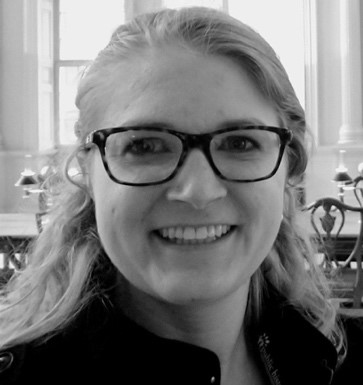 |
|
Laurie Medford is a doctoral candidate in history, studying the role of slavery in financing UNC during its first three decades. She volunteers at several North Carolina historic sites and hopes to pursue a career in public history. Although she grew up in Wisconsin and sometimes still sounds like a Wisconsinite, North Carolina is her home now. Outside of research, Laurie enjoys hands-on projects like sewing, gardening, and other DIY adventures. One of her current projects is trying to reproduce late-18th century pottery made in the North Carolina piedmont. |
| |
|
|
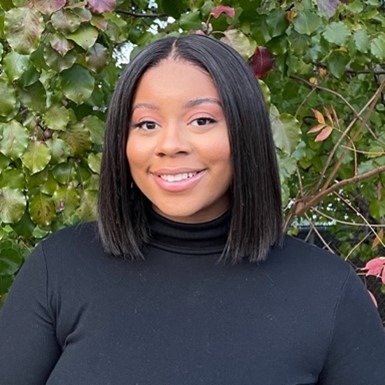 |
|
Alexandra Odom is a fifth year History Ph.D. candidate from Baltimore, Maryland. She received her B.A. in History from Grinnell College. As a Fulbright scholar, Alexandra received her first M.A. in History from Queen Mary University of London, where her work explored the interracial relationships and children of African American soldiers stationed in England during World War I and British women. Her dissertation project explores Black Love and relationships as they are represented in black owned print publications during the 1980’s. |
| |
|
|
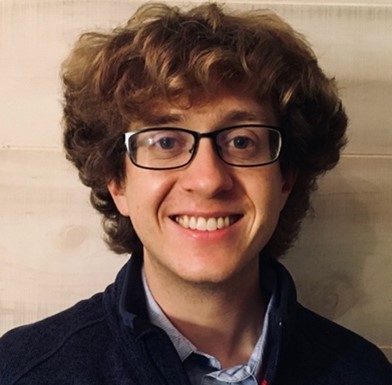 |
|
Z Quanbeck is a fourth-year Ph.D. student in Philosophy. His research interests include epistemology, ethics, and the history of Western philosophy. He grew up in Minnesota and obtained his B.A. in Philosophy and History at St. Olaf College. He misses the snow. His hobbies include hiking and making hot sauce. |
| |
|
|









